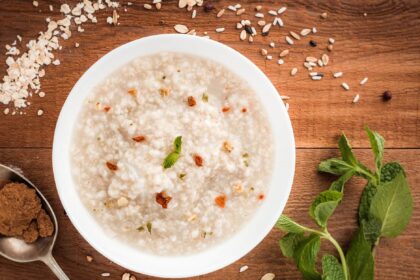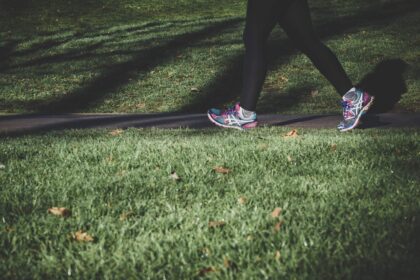Most of you have experienced feeling tired and worn out at the end of a long day. There are few natural ways to boost your energy levels. You’re not alone if you’re tired, can barely stay awake, or find yourself needing multiple cups of coffee to make it through the day to lunch. Fortunately, there are plenty of healthy things you can do to boost your energy and reduce fatigue.
A few simple changes to your day-to-day routine can make a huge difference in your overall health, including how energized you feel. Many health experts believe that your energy level is determined by genetics, sleep patterns, and exercise. You should have a lot of control over the foods and lifestyle choices that help you feel more energized. Most supplements and nutrition products are not regulated by the FDA.
Here are 15 natural ways to boost your energy levels, which may help you fight weakness and increase energy so you can go through the day with more vigor.
Things that may contribute lack of energy:
Signs of health conditions include:
- Not moving enough – Even if you are tired, try to get up and move every day. Exercise can help increase your energy levels.
- Stress – Too much or too little stress can make you feel tired and make your quality of life suffer. Reduce your stress and learn effective ways to manage stress.
- Insufficient protein intake – Insufficient protein helps to boost your metabolism and muscle growth.
- Lack of fluids – Not drinking enough fluids can affect your focus and energy levels. Keep yourself hydrated.
- Poor quality sleep – Getting a good night’s rest will give you more energy and help your body and mind reset.
- Not enough calories – Fatigue can be caused by not eating enough calories and nutrients. Make sure you are getting enough calories from healthy, wholesome foods.
- Consuming too many refined carbs – These are great sources of instant energy. Concentrate on whole grains as much as you can.

Symptoms of weakness:
Weakness symptoms can apparent as physical, mental or emotional exhaustion while trying to do everyday tasks.
Other common signs of weakness include:
- Lack of motivation
- Moodiness
- Slowness
- Drowsiness
- Delayed reaction time
- Gastrointestinal problems
- Difficulty concentrating and learning
- Sore or tired muscles
- Lack of concentration not feeling refreshed after sleeping or rest
- Headache.
15 Natural ways to boost your energy levels:
1. Eat nutritious diet:
If you often feel tired, sluggish, and unmotivated, changing your eating habits can help. Eating a healthy diet can reduce your risk of several chronic conditions and significantly affect your energy levels. Nutrient-rich foods provide your body with the energy it needs to function optimally. Avoid processed foods that are loaded with fat and sugar, as they can negatively impact your energy levels. Eating enough food to last you throughout the day is essential, as skipping meals can result in fatigue, stress, and poor concentration.
2. Vegetable juice:
The fiber in vegetables is removed during juicing, making it easier for the body to digest and absorb. As a result, you’ll feel more energized because your body has less work to do to get the nutritional benefits from vegetables. Drinking your vegetables juice also provides your body with vitamins and minerals and boosts your cells’ energy levels.
3. Intake herbal teas and avoid caffeine:
Herbal tea gives you a quick and all-natural energy boost without any stimulants or processed ingredients. Green tea has a lot of health benefits for you. It helps with anti-aging, anti-free radicals, and is rich in catechin which is an antioxidant. Matcha is a good green tea. Drinking coffee is linked to a more diverse microbiome. Cut back on the caffeine in the afternoon because it makes it hard to sleep. A small study showed that taking small amounts of caffeine (about 1/4 cups (50 mL) throughout the day) was better than larger doses for increased alertness.

4. Avoid added sugar and consume more magnesium:
Sugar can temporarily boost your energy when you’re feeling tired, but it’s short-lived and it can make you feel even more tired. Eliminating added sugars can also help improve your health and increase your energy levels. If you want to satisfy your sweet cravings while maintaining your energy levels and preventing fatigue, eat berries, trail mixes or dried foods.
You can meet your vitamin and mineral requirements by eating a healthy diet. Magnesium is needed for over 300 biochemical processes in your body, including converting glucose into energy. When magnesium levels are low, your energy levels can drop. To make sure you’re getting the recommended daily magnesium intake, eat more fish, whole grains, and a bit of almond, hazelnut, or cashew.
5. Eat whole grains & avoid ultra-processed foods:
When you eat foods that are high in sugar or carbs, your blood sugar levels will rise. Eating whole grains will help you feel less fatigued later in the day because your energy levels will be more stable and balanced. Eating sugary foods, sugary beverages, and foods with high calories, high fat, and high sugar content have too much sugar, salt, bad fat, and chemical additives. These foods cause rapid changes in blood sugar levels and can reduce your energy levels. Eating more complex carbohydrates, especially plant-based carbs, can help control your blood sugar levels.
Limit processed foods:
- Choose for fruit instead of juice or soda,
- Choose for oatmeal instead of sugary cereal,
- Choose for dark chocolate instead of candy bars,.
6. Adaptogenic herbs:
If you’re feeling tired, worn out, or stressed, adaptogenic herbs can help. Adaptogens support your whole body’s delicate mechanisms for dealing with fatigue, stress and anxiety. The best adaptogenic herbs for you are Ashwagandha, Rhodiola and Holy Basil. They’ve been proven to boost energy and fight low energy in men and women.
7. Eat chia seeds:
Chia seeds are small natural energy foods that provide you with more energy and nutritional value for your money. Chia seeds are rich in Omega-3 fatty acids and Omega-6 fatty acids, which have been proven to enhance sleep quality, improve mental performance and reduce inflammation. Chia seeds are considered to be superfoods and natural supplements. They are high in protein and fiber, which helps in maintaining blood sugar levels.
8. Stay hydrated:
Dehydration, can have a profound impact on your mood, energy levels, and other aspects of your life. Acute dehydration can significantly worsen athletes’ perceptions of fatigue and muscle performance. To stay hydrated, try to drink water whenever you feel thirsty. If you have a high level of activity or live in a hot climate, you might also need to increase your intake. 9 glasses of water for women and 13 glasses for men, on average. Since water makes up the majority of your bodies, even slight drops in hydration can have an impact on metabolism. Increasing your intake of water will help you stay more hydrated.
9. Prioritize your sleep:
Sleep deprivation drains your energy and makes you feel tired, irritable, and unmotivated the next day. Most experts recommend getting at least seven hours of sleep a night to boost your energy levels and support your general health. Beginning a regular sleep routine and unwinding with a relaxing bath, book, or soothing music at night can help if you struggle to fall asleep.
Many studies suggest that reducing the amount of time you spend on electronic devices such as phones, laptops, or TVs before bed can also help you sleep better and stay awake throughout the day. Maintaining a consistent sleep schedule means going to bed at the same time every night, including weekends.
10. Get moving and attach with people:
Increasing your physical activity has been shown to fight weakness and increase energy levels. Regular exercise can reduce your risk of chronic diseases such as heart disease, type 2 diabetes, and obesity. Exercise also reduces fatigue, boosts productivity, and enhances sleep quality. According to experts, increasing physical activity, particularly walking, increases energy levels. A 10-minute brisk walk increased energy levels and lasted up to two hours.
Social isolation has been linked to feelings of depression and burnout, particularly as you age. Even better social support has been linked to improvements in aging-related physical and mental well-being. If you’re feeling down or out of whack, try socializing with your friends, joining a class or joining a club, volunteering or finding a new hobby to get you out of the house.

11. Reduce stress:
Stress can take a toll on your body and mind. People with busy lives often feel stressed, anxious, or overwhelmed. Low but sustained levels of stress can deplete your energy reserves; over time, you will find yourself less active and more stressed.
Natural stress relievers include:
- Yoga
- Tai Chi
- Meditation
- Mindful breathing
- If yoga isn’t for you, talk to a trusted friend, keep a diary, or talk to a certified behavioral health professional.
12. Avoid smoking and cut down alcohol:
In fact, smoking causes insomnia, which makes it harder to fall asleep. It also makes you feel less energized and less likely to switch to healthier habits. Smoking has a negative effect on your health and may increase your risk of developing many chronic conditions, including high blood pressure, high heart rate, and more. So, quitting smoking could have a number of positive health benefits, including more energy.
Moreover, alcohol has sedative effects and may make you feel drowsy and relaxed. Drinking alcohol before bed regularly can affect your mood, interfere with sleep, and raise cortisol, a stress hormone. So, it’s best to drink in moderation and avoid alcohol right before bed.
13. Don’t skip meal and feed your gut:
Many studies shows that people who eat breakfast feel happier and more energetic throughout the day. If you skip your meals throughout the day, you will be more tired and exhausted when you got home. Eating a balanced diet of complex carbs, healthy fats and protein helps you release your energy slowly throughout the day, especially in the morning when simple carbohydrates set the tone for the rest of your day.
Your gut microbiome consists of billions of microbes that play an important role in your overall health. Good microbes help with digestion and improve metabolic and cardiovascular health. Bad microbes, on the other hand, can cause type 2 diabetes, heart disease, growth of visceral or belly fat, and inflammation. Few studies even show that weakness is a symptom of bad gut health. Eating foods that promote the growth of “good” microbes helps reduce the number of “bad” bugs in your gut.
14. Check your thyroid and blood cell:
If you have anemia or thyroid dysfunction, it could be a sign that you are not getting enough energy. Talk to your doctor if you have anemia. A blood test can tell you if your problem is thyroid. Thyroid dysfunction is a common problem for women, especially after having a baby and often in the perimenopausal period. If your doctor prescribes medication for thyroid dysfunction, it will allow your body to return to normal. When you have anemia, your red blood cells decrease. This usually means that your body is not getting enough oxygen. This can lead to tiredness.
15. Revamp your relaxation and get inclined:
If you spend your weekends and evenings binge-watching Netflix, it might be time to change that up. According to some studies, spending time in nature improves your mood and lowers your blood pressure. Serotonin, a neurotransmitter that makes you feel good, increases with outdoor activity.
Lying on your back with a pillow between your feet and your head to elevate your spine. An adjustable exercise bench or a slanted surface is best for this. Yoga practitioners in India use this to increase blood flow to your brain, which is thought to fight fatigue and boost your alertness. If you upgrade your pillow, you might be able to experience better, rejuvenating sleep. Use a special neck pillow or a softer, thinner neck pillow.
Supplements correctly:
No matter what nutrient-rich foods you eat, your body may not have enough of some nutrients. There are many different vitamins and supplements that can help boost your energy levels.
- Iron – It is essential for delivering oxygen to your body’s tissues. Eat a variety of iron-rich foods in your diet, such as red meat, poultry, seafood, beans, dark leafy greens, naturally-dried fruits, and peas.
- Ashwagandha and Rhodiola Rosea – Both are adaptogens, which are botanical supplements that can help the body fend off the negative effects of mental and physical stress.
- Vitamin B12 – Natural sources of vitamin B12, which is necessary for the body to produce energy, include some animal proteins like meat, fish, and dairy. A supplement would be beneficial for you.
- CoQ 10 – Every cell in your body contains CoQ10, an extremely potent antioxidant that is essential for the production of energy. Your body makes CoQ10, and you can also consume certain meats, fish, and nuts in your diet. Because your capacity to produce CoQ10 declines with age, taking supplements may be advantageous in later life.
- Melatonin – For optimal health and to boost energy levels, good sleep is crucial, and melatonin may help.
You can purchase a number of combination supplements designed specifically for energy, sleep, and stress. Although taking supplements may help you stay awake and energized throughout the day, these things are not a replacement for getting enough sleep, eating well, drinking plenty of water, and engaging in regular exercise. Talk to your doctor to find out what supplements you should be taking and if you’re missing any important nutrients.
Precautions and risks:
Once you’ve tried some of the natural remedies mentioned above, if you’re still feeling low energy, remember that there are other things that could be causing it. Some medications, thyroid issues, depression, anemia are some of the most common reasons for low energy. Chronic fatigue can also be a symptom of more serious illnesses such as cancer, COPD, diabetes or kidney problems. If you’re experiencing any negative symptoms other than feeling less energetic, speak to your doctor immediately to discuss your concerns and make sure that there isn’t something more serious going on.
Conclusion:
Weakness and lack of energy can affect you throughout the day. You can change your energy levels by making healthy lifestyle choices such as getting enough rest, exercising, eating a healthy diet, and spending time with friends and family. You can also change your energy levels if you reduce your intake of high-processed foods, alcohol and tobacco. You can boost your energy levels by prioritizing sleep, water and physical activity, and deciding on the best ways to reduce stress.
If you’re experiencing weakness, it’s important to look at your lifestyle to see what you can do to improve your energy and feel better. Treat your body with care and respect, put your health first, and make sure you’re eating the foods it needs every day. If you’re still feeling tired, talk to your doctor to find out what’s causing it and what can be done to improve your energy.
FAQ:
Are there specific foods that help improve energy and vitality?
Yes, there are foods that can increase your health and vitality. For example, you can add leafy greens to your diet, whole grains to your diet, and lean protein to your diet. Leafy greens are rich in vitamins and minerals, which help your body produce energy. Additionally, berries and nuts are high in antioxidants, which can help fight oxidative stress and improve your overall health.
How can I increase energy naturally without caffeine?
Eating a healthy diet rich in nutrients like fruits, veggies, whole grains and lean proteins can help boost your energy naturally. Exercising regularly can also help increase your energy levels by increasing circulation and improving your overall fitness. Staying hydrated, getting enough sleep and using relaxation techniques to manage stress can also help you stay energized without caffeine.
What are the best natural supplements for boosting energy?
Several natural supplements can help boost energy levels. Adaptogens like Rhodiola rosea and Ashwagandha are known for their ability to enhance resilience to stress and promote sustained energy. Additionally, B-vitamins, iron, and CoQ10 are essential nutrients that support energy metabolism and can be obtained through supplements or a well-balanced diet. Always consult with a healthcare professional before incorporating new supplements into your routine.

Can exercise and physical activity naturally increase energy levels?
Yes, exercising and engaging in physical activity is a natural way to boost energy. Exercise increases blood flow and oxygen and nutrient delivery to tissues, improving overall energy function. Exercise also releases endorphins which reduce fatigue and improve mood, helping to keep you feeling energized throughout the day.
Reference used:
https://www.health.harvard.edu/energy-and-fatigue/9-tips-to-boost-your-energy-naturally
https://www.healthline.com/nutrition/how-to-boost-energy
https://www.webmd.com/women/features/10-energy-boosters





